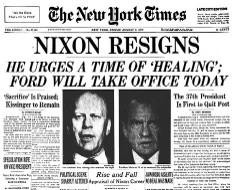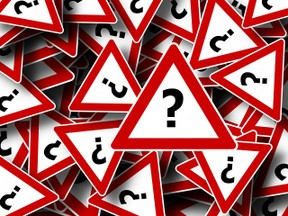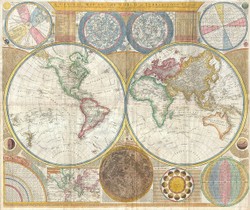 My main gripe with the term 'conspiracy theory' is in how it is used.
My main gripe with the term 'conspiracy theory' is in how it is used.
Official history may be examined from every possible avenue and angle. Libraries full of history books on the same subject are testimony to that. Conspiracy theories are meant to be instantly put aside, never to be considered again.
No, that is not how historians work. If history is written by the winners (who aren't always those who thought that they won at the time), then there is practically a duty to investigate what stories were left untold.
The term 'conspiracy theory' tends to be injected into the debate in the same way as other stop words, like 'un-American', 'paedophilia' or 'Nazi'. They are words or phrases which you can't argue beyond without appearing somehow ridiculous, naive, criminally insane or traitorous. It's a personal attack to divert attention away from what you're actually saying.
At the very least, that's bad debating skills. At worse, it's forcing conformity into a single point of view.
Moreover, by using the word 'theory', it implies that no evidence has been produced at all; or that nothing is proven by that which is on the table. How many people, with just a casual or passing interest in the story, actively evaluate the facts for themselves? There's an assumption that the person dismissing the case has already done that and found the evidence lacking.
Am I saying that every version of events labelled a 'conspiracy theory' is actually true? No, I'm not. But I am arguing that we'll never know, unless we afford them all the same scrutiny as we do the commonly accepted versions.
Under the strong spotlight of the evidence, many will wither away as unsupported paranoia. But others may not. As Mulder, in The X-Files, put it so succinctly, the truth is out there.


 People have been referring to conspiracy theories since the end of the 19th century, but it's only been the last couple of decades that it's taken off as a common term.
People have been referring to conspiracy theories since the end of the 19th century, but it's only been the last couple of decades that it's taken off as a common term.


 Have you worked out yet which of the two narratives is 'real history' and which is 'just a conspiracy theory'?
Have you worked out yet which of the two narratives is 'real history' and which is 'just a conspiracy theory'?


 My main gripe with the term 'conspiracy theory' is in how it is used.
My main gripe with the term 'conspiracy theory' is in how it is used. 

 St Tydecho's Churches in West Waleson 09/03/2014
St Tydecho's Churches in West Waleson 09/03/2014
 Goodies for an Outlander Premiere Partyon 03/06/2015
Goodies for an Outlander Premiere Partyon 03/06/2015
 Holocaust Memorial Day Interview with Rainer Höss, Grandson of Rudolf Architect of Auschwitzon 01/24/2015
Holocaust Memorial Day Interview with Rainer Höss, Grandson of Rudolf Architect of Auschwitzon 01/24/2015
 Romantic Valentine Gifts for an Outlander Fanon 01/16/2015
Romantic Valentine Gifts for an Outlander Fanon 01/16/2015



Comments
Thank you. :)
Absolutely perfectly put.
Thank you very much.
excellent argument.
Until about the '70s, conspiracy theory was quite a neutral term. It was neither good nor bad. It simply meant a theory that there had been a conspiracy.
It's only as these stories started to feed on the paranoia of the Cold War, Watergate et al., that they became popular. You then have the twin declamations of REALLY ludicrous conspiracy stories interlinking several others, as the investigator saw their own version affecting everything; plus the government (who was usually being defamed in these stories) disdaining them in the media.
Next thing you know 'conspiracy theory' comes to mean anything which isn't officially sanctioned, and probably ridiculous and paranoid in the extreme. It's this classification which really annoys me. Each one on its merits, please!
I've also heard the meat one. Being a vegetarian and not a scientist, I vaguely thought that it sounded legit. But I've never looked into it, thus never passed it on. Thanks for putting me right!
I came in to tell you that I know a lot of people I'd call conspiracy theorists, and then I read this and you've proved a good point! I think I use the term less with people who believe alternate ideas on historical events and more with things people believe that are just totally inaccurate so I guess I'm not even using the word properly.
The most common bizarre thing I've come across lately is how many people believe a story about cloned meat. I guess people believe that beef cattle and chickens are cloned to save money. Actually I was pretty drunk the first time someone explained this to me, and I was blown away. Sort of like...WAIT. WAIT. WAT? So I actually had the guts to turn around and explain in complete detail how cloning is nothing like it is in science fiction, and how it actually works, thus showing him how cloning would save neither time nor money in the meat industry, and would really be a pointless thing for them to do, and then I provided lots of other reasons why he wouldn't want to eat meat (that weren't totally inaccurate >.>) to make him happy. It's come up so many times now though, that I've just given up. "You should only buy organic chicken," advises random fellow shopper in the store, "that chicken you've got there was probably cloned." I looked at it for a moment, and then replied "Wow, that explains why this is so pricey!" ...Yup!
Nice article :D
Oh! I remember that. George W. Bush? That was a horrible period for black and white thinking.
One of the most disturbing quotes ever uttered in the USA, in my opinion, was "either you are with us, or you are with the terrorists" - talk about black/white.
It's something which is force fed to us by the media too. Everything always has to be black or white, one side or the other. Real life is much more multi-faceted than that.
Sometimes people can get too lazy with the information that they receive. They want a two second soundbite from someone who looks respectable. Then they know everything. This is how marketing works too.
Question everything! That's me, you and Socrates who are conspiracy theorists now.
Funny, I've recently had an interesting discussion concerning exactly the same matters... Mocking people who ask inconvenient questions is a good trick, from the politicians' point of view, after all the weaker ones might succumb to bullying and simply stop asking.
I don't believe it is possible to be truly informed about contemporary political matters - too much crucial information is deemed 'confidential' and withheld. General public is fed high sounding slogans and basically told to pay taxes and shut up.
Now, am I a conspiracy theorist??